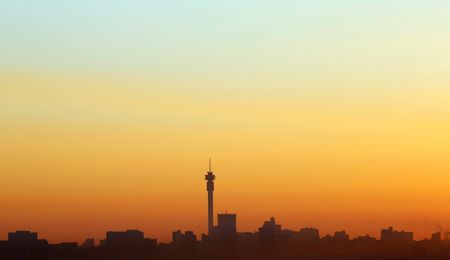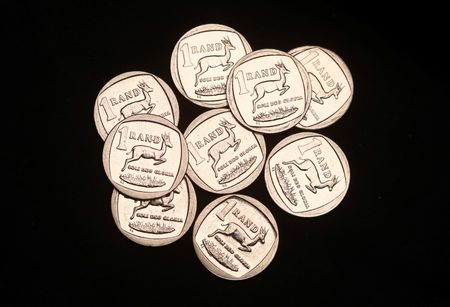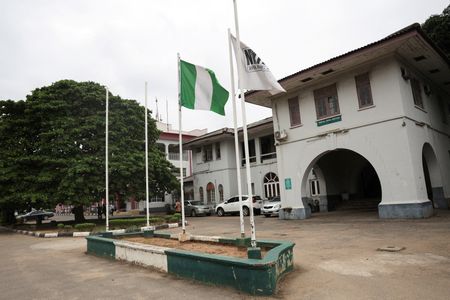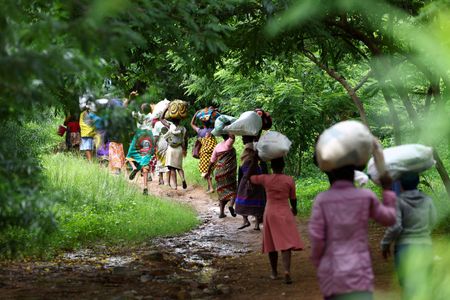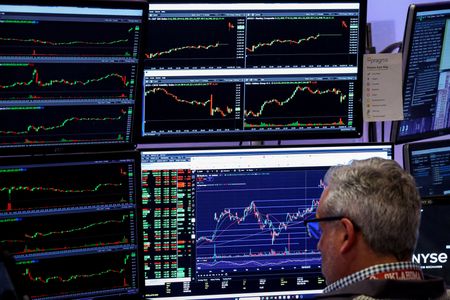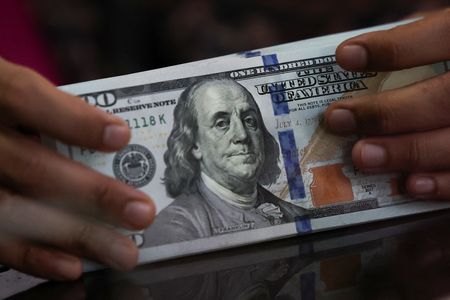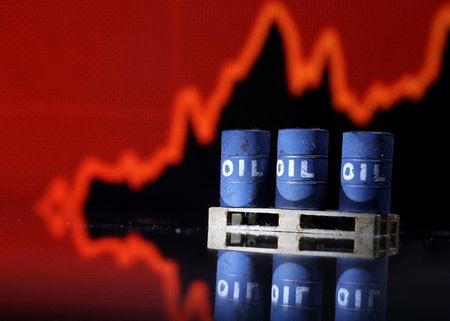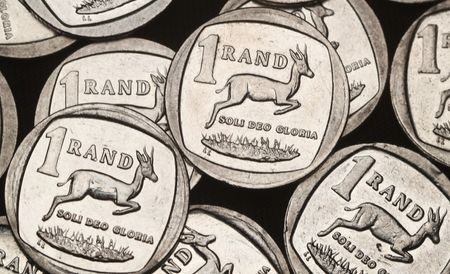By Nqobile Dludla and Lovasoa Rabary
JOHANNESBURG/ANTANANARIVO (Reuters) – The U.S. government’s imposition of steep tariffs on African nations signals the end of the AGOA trade deal, an initiative meant to help African economies develop through preferential access to U.S. markets, trade experts said on Thursday.
Several African countries were hit by some of the highest tariffs announced by the White House on Wednesday, including levies of up to 50% on goods from Lesotho, 47% for Madagascar, 40% for Mauritius, 38% for Botswana and 31% for South Africa, the continent’s biggest exporter to the U.S.
Countries have reacted differently to President Donald Trump’s tariffs. South Africa said it urgently wants a new trade deal with the U.S., while Kenya said the 10% tariffs it faces could give it a competitive edge in textiles over worse-hit Asian rivals.
Many are already struggling with high poverty levels and debt. Madagascar faces food shortages caused by drought and exacerbated by cyclones. Tiny Lesotho has one of the world’s highest HIV/AIDS infection rates.
The tariffs also compound the pain from Trump’s dismantling of USAID, the government agency that provided much of the continent’s aid, and his administration’s decision to cut bilateral assistance to South Africa.
Analysts were quick to predict that the U.S. move would further bolster China’s already dominant role as a trading partner and investor in Africa.
“China is likely to play up its commitment to more predictable rules-based economic engagement, which could push countries even closer to its orbit,” said David Omojomolo, Africa economist at Capital Economics.
AGOA, which grants qualifying African nations duty-free access to the U.S. market, is due to expire in September. And the raft of tariffs suggests a renewal of the trade accord – a cornerstone of U.S. policy towards Africa since the 1990s – is now unlikely.
“The reciprocal trade announcement policy will pull the AGOA rug from under our feet,” said economist Adrian Saville, a professor at South Africa’s Gordon Institute of Business Science.
A senior official at Kenya’s foreign ministry said he expected tariff exemptions under AGOA to remain valid until September. The Washington-based African Coalition for Trade, however, believed they would not.
“This is obviously not a positive sign for the outlook for renewal of AGOA,” the organisation said in a memo to members on Thursday.
FROM VANILLA TO CAR PARTS
The United States is South Africa’s second-largest bilateral trading partner after China.
“The tariffs affirm the urgency to negotiate a new bilateral and mutually beneficial trade agreement with the U.S.,” South Africa’s presidency said in a statement.
Trade Minister Parks Tau said South Africa should not take a “retaliatory approach” towards Washington but continue to engage while also diversifying its trade partnerships.
A new trade deal with Washington looks like a mountain to climb, however, given Trump’s recent hostility towards Pretoria.
He has repeatedly attacked a land reform policy meant to address the legacies of colonialism and apartheid, characterising it as discrimination against white people.
Kenya said that the newly imposed 10% U.S. tariffs would raise costs for Kenyan businesses but noted that major textile-exporting competitors Vietnam, Sri Lanka and Bangladesh were facing steeper levies.
“Kenya could position itself as an alternative sourcing hub for U.S. buyers. This presents an opportunity for investment in local textile production,” its trade ministry said.
In Madagascar, the government said it had contacted the U.S. embassy for clarification regarding the tariffs and to press for their reduction.
Madagascar’s former ambassador to Washington, Eric Andriamihaja Robson, said the calculations used to determine the tariffs were “flawed and unfair” and called a demand that poor trading partners ramp up their imports from the U.S. unrealistic.
“Imports aren’t driven by emotional choices but rather a set of parameters,” he said in post on LinkedIn that pointed to the example of voltage differences between the two countries as a reason Madagascar did not import U.S.-made appliances.
“In the meantime, we will keep growing and exporting our vanilla until the U.S. grows its own.”
Trump’s latest tariffs are in addition to the 25% imposed on all vehicles and car parts imported into the U.S., which will kick in from Thursday.
This is a particular threat to South Africa, which exports over $2 billion a year in vehicles and auto parts to the U.S.
Other major South African exports to the U.S. include precious stones and metals, iron and steel, machinery and aluminium products and citrus.
The Citrus Growers’ Association of Southern Africa said it was wrong to suggest that South African growers were competing with their U.S. counterparts, because they met U.S. customer demand when local citrus was out of season.
“Every single year, we ‘hand over’ buyers to our counterpart growers in places like California, Arizona and Texas,” it said. “Citrus also plays an important role in the healthy diet of Americans.”
(Reporting by Nqobile Dludla, Nelson Banya, Olivia Kumwenda-Mtambo and Catherine Schenck in Johannesburg, MacDonald Dzirutwe in Lagos, Aaron Ross in Nairobi and Lovasoa Rabary in Antananarivo; Writing by Bhargav Acharya and Estelle Shirbon; Editing by Mark Heinrich and Joe Bavier)

